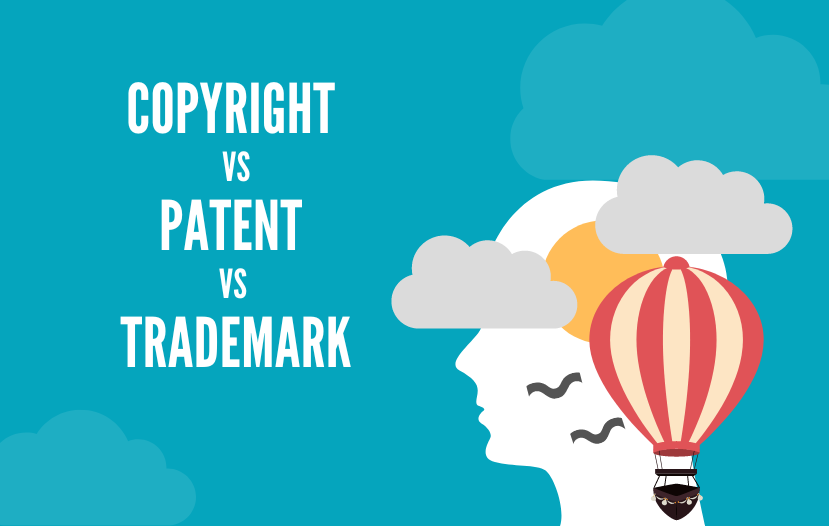
Entrepreneurs and business owners need to understand the basics of I.P., or intellectual property, to protect their creations and ideas from unfair competition. Basically, Intellectual property is the heart and core of any organization. It should be considered more valuable than physical property.
The domain of IP is vast but copyrights, trademarks, and patents are the most common rights offered through IP protection. Understanding how each protection works is crucial for any business as each of them differs in what kind of intellectual property they protect.
Trademarks
A trademark is anything that helps your consumers identify your brand, including words, logo, sound, image, or even a colour scheme.
Registering a trademark provides you with licensing rights to stop other companies from registering similar names. It helps to secure exclusivity over your mark throughout the country/region of registration.
In India, there are 45 distinct classes for trademarks. Each class represents specific products or services. You must be sure when filing for registration that you have chosen the appropriate class or section depending on the type of your business.
Also, nobody with similar business objectives may copy or use your trademark (whatever emblem, name, or mark you pick). It might, however, be applied by someone registering in a different class.
Your trademark is legally admissible forever. However, the application must be renewed every 10 years.
When to register?
As soon as your brand starts to take off, you should get your trademark registered. Someone else with the same commercial interest may register for the trade name or mark in the near future if you fail to do so timely. As a result, you run the risk of having to completely replace your brand name, which can affect your ability to keep your current clients.
Copyright
Copyright covers both literary (including books, scripts, and even software) and audio-visual (including music, pictures, and movies) artistic works. For as long as the copyright is in effect, the copyright owner has the sole right to display, share, perform, or license the material. Copyright grants the owner the ability to protect their work against illegal use as well as any duplication of the work.
Important points to be considered for copyright registration -
Copyright registration creates a public record. It signifies that your work is protected by a copyright.
The author who has registered their copyright is permitted to sell, copy, or use a portion of a copyrighted literary work for any reason. It allows you to get legal evidence of your ownership.
A copyright is valid through the lifetime of the author and 60 years after their death.
Patent
A patent protects new inventions or processes. The primary goal of the patent law is to encourage innovation. It provides you the authority to bar others from producing, utilizing, importing, or selling what you have invented. A patent is sought for gaining competitive advantage over others.
What are the industries where patents are usually desired?
Particularly in the industrial and pharmaceutical sectors, patents are highly desired. With a patent registration in place, the creator/company solely has the right to use their or invention/method/process.
A product patent for food, chemicals, medicines, or drugs is also a patentable invention, as are any art, process, method, or way of manufacturing; machines, apparatus, or other items; substances produced by manufacturing; computer software with a technical application to industry or used with hardware.
The patents are good for 20 years after which they lose their validity and enter the public domain.